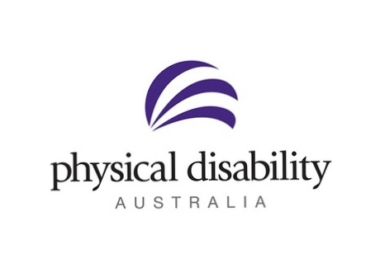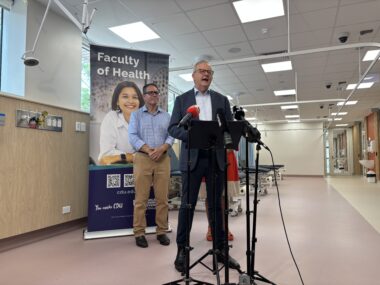Engineers at UNSW have weaved their magic to create a new material made of silk that could ultimately help regenerate heart tissue.
They have taken silk from a domestic silk moth, turned it into a form of jelly called a microgel using light and shown in mice that it is tolerated in the body and can help regenerate cells and tissue.
The microgel is designed to mimic the mechanics and physical properties of what cells interact with anywhere in the body, as well as the properties of human tissue.
The ultimate goal is to continue to develop the material to assist in the treatment of cardiovascular diseases and also support the heart muscle in people who have had a heart attack.
Associate Professor Jelena Rnjak-Kovacina and her team have published their findings in the Advanced Functional Materials journal, showing that cells and blood vessels can grow within the microgel when implanted onto the skin of mice while also promoting the generation of new tissue.
The power of silk
“Our microgels are made up of entirely of silk, but we can also load them with other molecules such as drugs and proteins that help control inflammation or promote tissue growth, so they work both to support damaged tissue and as a delivery vehicle to promote tissue regeneration,” says A/Prof. Rnjak-Kovacina from the UNSW Graduate School of Biomedical Engineering.
“The ultimate goal is to be able inject these microgels into the heart muscle after a heart attack in order to support the heart muscle and help it regenerate.
“We get the silk from a moth that creates the material when it builds its cocoon as part of its metamorphosis from a worm. One benefit of silk is that it is very strong, on a par with Kevlar - a synthetic fibre used in bullet-proof vests.
“We can take that silk fibre and dissolve it to create liquid silk. From there, we use light to turn that liquid silk into a form of jelly – exactly in the same way that you make Jello from a liquid, but instead of doing it through a temperature transition we can do that with light.
“And that jelly, or microgel in this case, has been shown to support cell growth when placed in the body.”
The way the microgel works is to stimulate the right inflammatory responses within the body to promote cell growth and tissue regeneration.
In addition, it can also be loaded up with special proteins, or growth factors, that help stimulate the formation of new blood vessels.
Those are already being used clinically, but they degrade relatively quickly if simply injected into the body. By delivering them via microgels, the researchers hope a slower release would also result in better biological outcomes.
“The really big problem we're trying to solve is that after a heart attack a portion of your heart muscle dies,” says A/Prof. Rnjak-Kovacina.
“Unfortunately the heart does not repair very well, so after a heart attack there is a weakened part of the heart muscle and the heart has to work a lot harder to overcome that and over time that can lead to heart failure.
“Our goal is to be able to inject what's called a cardiac patch so the microgel material stimulates the repair and regeneration process that then supports improved heart function.”
More porous and heterogeneous
One major new development in the new research is the porous nature of the microgel that has been developed which is shown to work better than existing hydrogels.
Hydrogels are much less porous and so cells in the body cannot easily move around and through the material and actually grow within them.
“That’s a problem that has plagued this field of research for decades,” says A/Prof. Rnjak-Kovacina.
“What we have done in our work is maintained all the good things about a hydrogel but then made it more porous. Instead of it being one homogenous gel we are making lots and lots of tiny microgels.
“Each individual microgel retains all the good properties of hydrogels but the additional porosity is creating better cell interactions.
“Another benefit is that our microgel mimics the complexity of the body. Hydrogels are homogeneous, it’s one lump that looks the same all the way through – but our bodies are not like that. Our bodies are heterogeneous, they're complex.
“With the microgels, the tiny individual elements can all be different and that allows us to build complexity that matches what’s also happening inside the body, which is really difficult to do currently.”
The UNSW researchers have already started further studies to inject their microgel into the hearts of mice to study the specific repair and regeneration properties in myocardial tissue.
If successful they would then test on larger animals such as pigs, before conducting clinical trials in humans which would likely take at least five years.
Wound healing
In the meantime, A/Prof. Rnjak-Kovacina says the microgel could be utilised sooner for use as a skin-wound healing agent, and also to develop human tissue in the lab that can then be used to test a wide range of other drugs.
“We're also testing these microgels for helping to heal skin wounds and that is a much less invasive process than injecting into the heart," she says.
“It could potentially be used for people with serious burns, or chronic wounds like diabetic ulcers that struggle to heal.
“Another broader application is to develop models of human tissues in the lab that properly mimic real human tissue that can offer a huge benefit when then testing new drugs and therapuetics.”
Key Facts:
UNSW researchers develop new microgel made of moth’s silk which is designed to assist with tissue regeneration and could help people recover from heart attacks.
Contact details:
Neil Martin, News & Content Coordinator, UNSW Engineering.
Email: [email protected]


